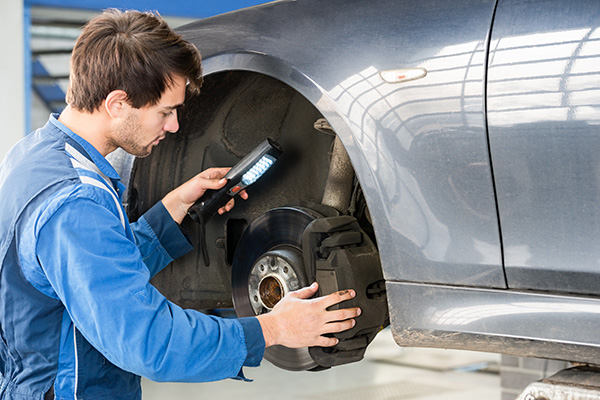Posted on 3/28/2025

A long road trip can be an exciting adventure, but nothing can ruin the experience faster than an unexpected breakdown. Whether you're heading out on a cross-country drive or a weekend getaway, making sure your car is in top shape before hitting the road is important. A little preparation can go a long way in preventing roadside troubles and keeping your trip stress-free. From checking your tires to ensuring your fluids are topped off, there are several important steps to take before a long drive. Here’s what you should do to prepare your car for a smooth and hassle-free road trip. Check Your Tires for Safety and Performance Your tires are the only point of contact between your vehicle and the road, making them one of the most critical components to inspect before a long trip. Worn-out or underinflated tires can affect handling, fuel efficiency, and overall safety. S ... read more
Posted on 2/28/2025

Driving should feel steady, controlled, and predictable. But if your car feels bouncy, unstable, or even out of control when hitting bumps or turning, something isn’t right. A bouncy ride can make driving uncomfortable, reduce handling, and, most importantly, affect your safety on the road. There are several reasons why a car might feel unstable, ranging from worn-out suspension components to tire issues. If your vehicle doesn’t seem to grip the road as it should, identifying the cause early can help prevent bigger problems and costly repairs. Worn-Out Shocks and Struts The suspension system is responsible for keeping your car stable, and shocks and struts play a crucial role in absorbing impacts from the road. Over time, these components wear out, leading to excessive bouncing, poor handling, and an overall rough ride. When shocks and struts start failing, you may notice: The front end of your car ... read more
Posted on 1/31/2025

Your car tires are getting you where you need to go, enduring countless miles, and ensuring your safety on the road. But what happens if you skip rotating them? You might be surprised to discover how significantly this simple maintenance task impacts your car’s performance, safety, and your wallet. Uneven Wear Skipping tire rotations leads to uneven wear, which is when some tires wear out faster than others. Why does this happen? Different tires take on varying levels of stress depending on your vehicle’s weight distribution and whether it’s front-, rear-, or all-wheel drive. For example, in front-wheel-drive cars, the front tires handle most of the braking, steering, and acceleration, causing them to wear faster than the rear ones. If you don’t rotate your tires, you’ll likely find yourself replacing them sooner than expected. And let&rsquo ... read more
Posted on 12/20/2024

Brakes are one of the most essential components of your vehicle. Without them, it would be impossible to stop safely. Over time, brake components wear down, and if not addressed, this can lead to reduced performance or even brake failure. This is where a professional brake check comes in. But what exactly happens during a brake check? Let’s take a look at what you can expect when you bring your car in for this service. Why Is a Brake Check Important Before we jump into the details, let’s address why brake checks are so important. Your brakes are constantly in use, whether you're driving in traffic, cruising on the highway, or stopping at red lights. With all that wear and tear, it's easy for small issues to develop. A brake check ensures that everything is functioning properly, helping prevent accidents and expensive repairs down the line. If you ever notice a squealing sound, vibration, or reduced stopping power, it’s time to get your brake ... read more
Posted on 11/29/2024

When temperatures start to dip, drivers often notice a low tire pressure dashboard warning. It’s common to wonder why the cold weather seems to affect tire pressure so much and what, if anything, you should do about it. In truth, this phenomenon is more than a minor seasonal annoyance—it’s a natural response of the air inside your tires to colder temperatures. Understanding how cold weather impacts tire pressure is important for maintaining safe driving conditions and preserving tire health. Why Does Cold Weather Affect Tire Pressure Tire pressure is directly influenced by temperature. As temperatures drop, the air inside your tires compresses, causing a decrease in pressure. It’s all due to basic physics: cold temperatures slow down the molecules inside the tire, reducing volume. For every 10-degree Fahrenheit drop in temperature, tire pressure decreases by approximately 1 PSI (pound per square inch). This might not seem like much, but it can ... read more